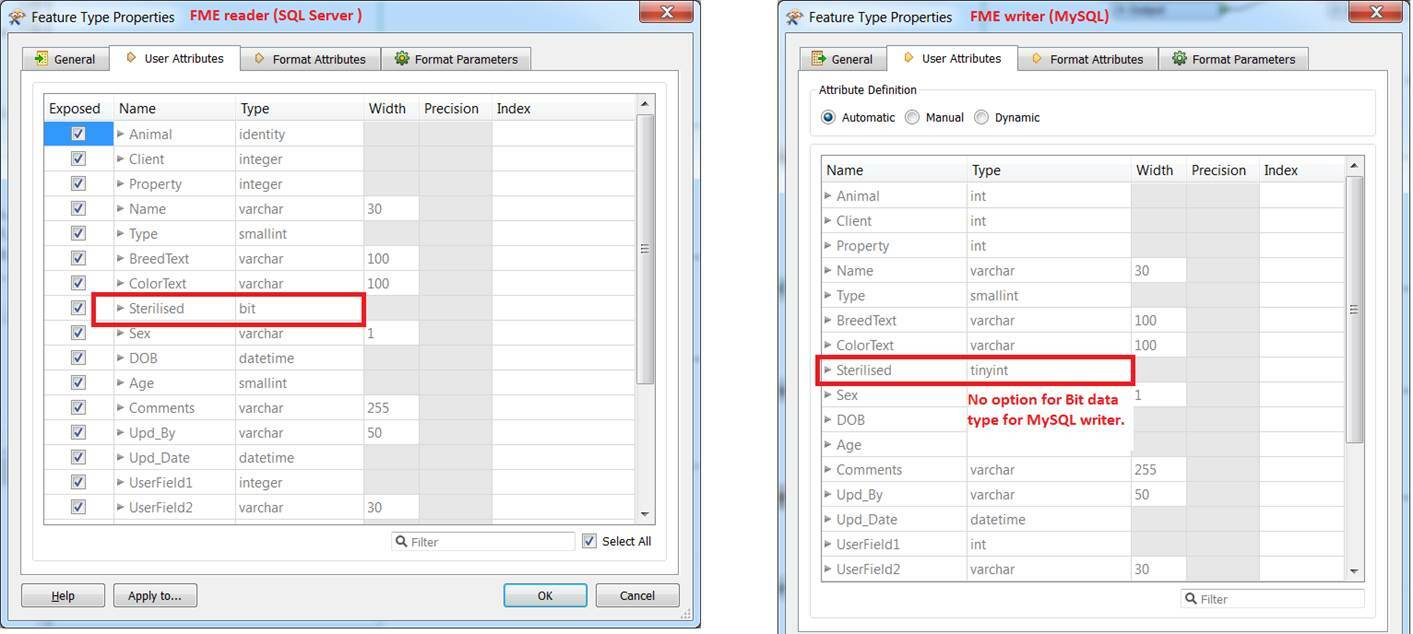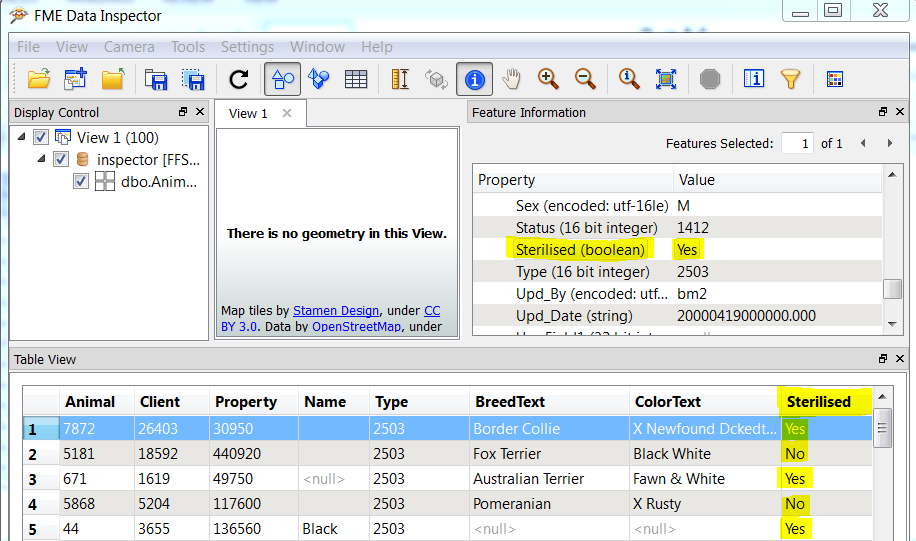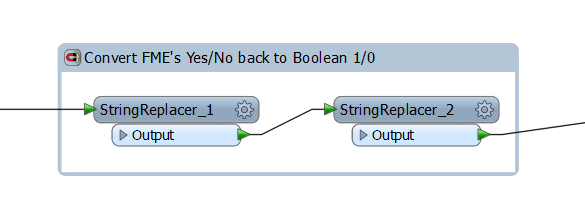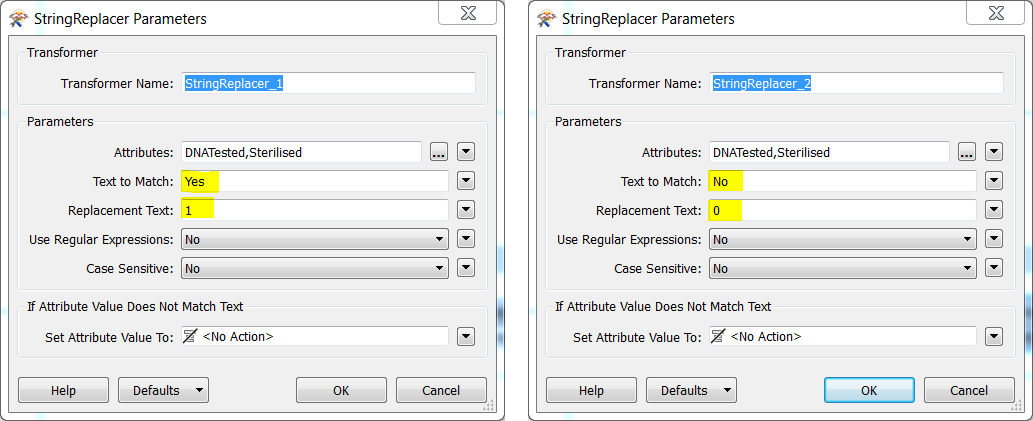I'd like to report what I suspect might be a bug with the MySQL data writer. Applies to FME 2015 Workbench.
I have a simple workspace consisting of a SQL Server data reader and a MySQL data writer. It reads a MS SQL table with some fields being a BIT data type. This then gets pushed out to a MySQL database (using a drop command first). I observed some problems with this, specifically to do with the BIT datatype.
(1) - The MySQL data writer dialog lacks support for BIT type. The nearest type FME can use is TINYINT. See screenshot below. Even if I choose Manual attribute definition, there is no "BIT" datatype in the dropdown list.

(2) - You would assume that there shouldn't be any difficulty writing a Bit (1 or 0) to a Tinyint. However FME reports errors during the write process. Even trying various different types: int, smallint, varchar produced same results.
Insert failed on table 'lynx_animals'. Error was 'Incorrect integer value: 'Yes' for column 'Sterilised' at row 1'
(3) - FME falsely reports that the write process was successful, even though no records were written (all records failed).
Am I right in assuming this to be a bug? What would be a work-around?











